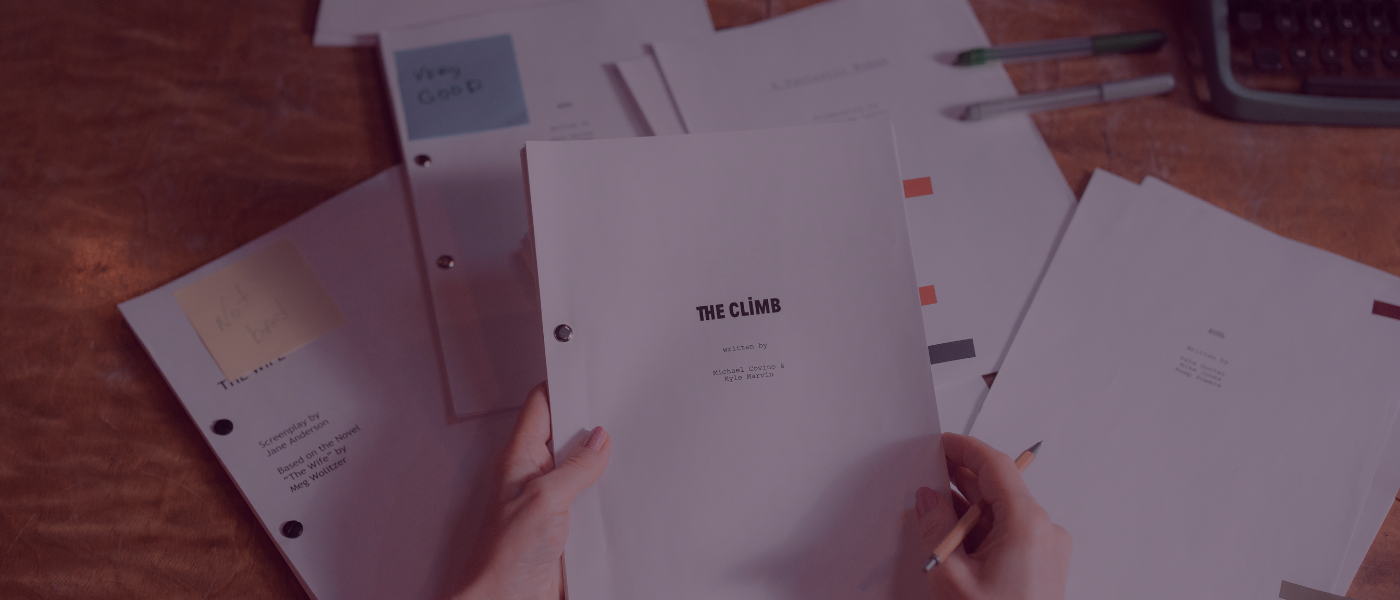Tips on sending your work to open calls for submissions
The gulf between morning pages and published pieces can seem vast and intimidating, but it doesn’t have to be that way. As a team made up of writers and artists, we know all too well how nerve-wracking the act of submitting can feel — as well as how valuable it is to share our work with readers. In fact, that’s arguably why we all do this work in the first place: to create connections with others who appreciate our stories and our experiences. At Seventh Wave, we believe that the best way to approach the process of submission is with transparency. After all, it’s easier to share resources and create in community than to try to go it alone!
Below, you’ll find some small insights we’re sharing about the submission process, as well as how we like to approach publishing.
Cover Letters
When it comes to cover letters, each literary magazine is a little bit different in what it’s looking for. Historically speaking, most cover letters are relatively short and straightforward, announcing the title of the piece(s), the genre, and then perhaps a sentence or two about the work itself. Oftentimes, reading committees are even told to disregard the cover letter and just focus on the piece. In recent years, however, there has been a movement toward more comprehensive cover letters that share more insight about the writer themselves. This goes hand in hand with the fact that more literary magazines are choosing not to read submissions “blind,” meaning that they are aware of identifying factors about the writer when considering a submission.
Seventh Wave also ascribes to this newer practice, with the understanding that sometimes systemic inequities off the page might impact the work on the page — who is afforded the privilege of an MFA? Who has the time or resources to take classes or workshops? And whose voices are often sidelined because predominantly older, white editors don’t “get” their writing? Cover letters, in other words, are a good opportunity for you to share a little more about who you are and what sparked the piece you are submitting. Use it as a space to tell the publication about you and your writing, if it seems that the publication is open to it.
Fees and feedback
Many literary magazines charge a nominal submission fee, somewhere between $3 and $7. Oftentimes, these fees help to cover the costs of the submission platform itself, or any stipends the readers might receive for going through submission queues. Still, these fees can begin to add up, so if a submission fee truly does pose a financial barrier, don’t be shy about reaching out to the publication to ask about fee waivers or other ways to submit. Some lit mags might hold firm on their fee, but most will likely be happy to help. The only exception here might be if there is a submission fee specifically because the publication offers feedback.
At Seventh Wave, we do charge a $7 submission fee in order to honor the time and labor it takes for our editors to read through hundreds of submissions, but we offer the option to waive the fee if it poses a financial barrier, no questions asked. We also offer personalized notes to anyone who sends us a complete submission (meaning, they responded to the required questions we asked in their cover letter), but we do not send specific feedback, as we believe doing so would require consent on the part of the writer.
Understanding Aesthetics
When looking at which lit mags you want to submit to, a very important part of the process is understanding the particular aesthetic of the work that they publish. Beyond making sure that they publish work in the genre that you’re submitting in, make sure to read at least two full issues of their publication (online or in print) to get a good gauge for what sorts of writing they’re looking for. Maybe you’re seeking a lit mag that has a track record of publishing experimental or genre fiction, like romance or climate fiction. Maybe you’re looking for a publication that is really into shape poems or that has elevated some incredible ecopoetry. Whatever your particular niche is, be sure to seek out places that feel like a natural home for your work; when selection committees are reading submissions, they’ll be looking for strong work, but also work that will fit in with what they are publishing, as it shows that the writer has an understanding of their aesthetic.
Seventh’s Wave aesthetic is very much social issues-driven; each issue revolves around a nuanced call that was co-written by a team of guest curators. So of utmost importance to us is that a piece speaks to the topic itself, in addition to being strong writing. Because as we say, if our call interests you, then you interest us.
Drafts and Polish
There is a prevailing myth that a piece has to be absolutely polished and in its final form before it is sent out into the world. And while, yes, it would be inappropriate to send out a copy of your morning pages in hopes that an editor will publish it as-is, there is actually more of a generous spectrum of how “done” a piece is before it can be sent out to lit mags. As with cover letters, each publication will have different expectations for the shape a piece should be in before it is submitted, but one thing to remember is that most lit mags do have editors that will be working with you on your piece to get it to a point of publication. Which is to say that there is always the possibility that the piece might change a bit. Some lit mags do publish the submissions they receive without too much editorial process, but many of today’s most exciting lit mags engage with their writers in some form of conversation about their work.
Seventh Wave’s policy on the state of submissions is that we welcome rough drafts, but not careless writing. So long as it feels clear to us that the writer has a solid vision for their piece and where they want it to go, we are open to accepting work that might require some digging into. After all, the editorial process (see below) is one of our favorite parts of what we do.
Expectations and Editorial Relationships
The editorial process may look different for different lit mags, based in large part on their workflow, the size of their team, and their overall bandwidth. Getting a good understanding of what the editorial process might be like earlier on can also help you to temper your expectations for what a working relationship will look like. Sometimes publications will be explicit about their commitment to working with writers on their pieces, or they will be clear that they do not do any heavy editing from point of selection to publication; either way, be sure to see what is stated on the lit mag’s website ahead of time if possible. Writing communities and listservs are also a great place to pose questions about a lit mag’s editorial process, as folks are oftentimes eager to share their experiences (both good and bad!).
Our policy surrounding editorial relationships is that it’s a process built upon mutual trust and respect. All of our editors are past contributors, meaning that they have been through the editing process themselves and understand the value of clear communication and thoughtful suggestions. We believe that the editor’s role in the editing process is to help the writer fully realize their vision for the piece, rather than being overly prescriptive or pedantic.
Payment
Most literary magazines are run on a shoestring budget, with everyone behind the scenes volunteering their time or being given a modest stipend for their work. To call literary magazines a labor of love, then, is both accurate and an understatement. As such, the budget that any given lit mag might have to pay its contributors can really vary. Historically, some literary magazines haven’t been able to pay their contributors at all, but do offer contributor copies or other forms of “payment” to help elevate their writers’ voices. Others who are only able to offer a nominal stipend do so with the knowledge that it is just a drop in the bucket for writers trying to make a living through their art.
For Seventh Wave, paying our contributors has always been a core part of our ethos, even if the amount is nowhere near a reflection of the excellent quality of the work we publish. We currently pay all contributors $100 for their published work, and endeavor to increase that amount over time as our budget allows. What we cannot pay monetarily, though, we endeavor to supplement with ample support and visibility: each year, we nominate our contributors for awards, write letters of recommendation for MFA programs and fellowships opportunities, and more.
The Art of Publishing
At the Seventh Wave, we say that we publish people, not just pieces. For us, this is at the core of everything we do at the organization: elevating previously unheard voices to engage in a conversation surrounding a pressing social issue. We know that a lot of labor and life experience goes into every piece that we publish, so we always try our best to honor the person and the process behind each piece. That means getting to know the writer in conjunction with their submission; engaging in months-long editing processes where the writer is in the driver’s seat; connecting contributors to others in their cohort so they feel a part of something bigger being published in community; and shining a light on contributors through our Spotlights vertical. We also like to keep in touch with our contributors long past the point of publication, so we offer things like discounts to future events, eligibility to our in-person residencies, and opportunities to join the team as an editor, should that be something that folks are interested in. All in all, we believe that publishing someone is just the beginning of a lifelong literary relationship, and we’re so grateful to be in community with more than 300 incredible writers, artists, and activists.



